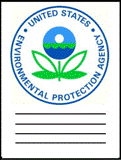United States Environmental Protection Agency

United States Environmental Protection Agency: Publications
Document Type
Article
Date of this Version
2004
Citation
Published in Clin Exp Immunol (2004) 138: 317–322. doi:10.1111/j.1365-2249.2004.02606.x
Abstract
The inflammatory response to ozone in atopic asthma suggests that soluble mediators of inflammation are released in response to oxidant stress. Antioxidants may alleviate additional oxidative stress associated with photochemical oxidant pollution. This study investigates the impact of antioxidant supplementation on the nasal inflammatory response to ozone exposure in atopic asthmatic children. We conducted a randomized trial using a double-blinded design. Children with asthma ( n = 117), residents of Mexico City, were given randomly a daily supplement of vitamins (50 mg/day of vitamin E and 250 mg/day of vitamin C) or placebo. Nasal lavages were performed three times during the 4-month follow-up and analysed for content of interleukin-6 (IL-6), IL-8, uric acid and glutathione (GSx). IL-6 levels in the nasal lavage were increased significantly in the placebo group after ozone exposure while no increase was observed in the supplement group. The difference in response to ozone exposure between the two groups was significant ( P = 0·02). Results were similar for IL-8, but with no significant difference between the groups ( P = 0·12). GSx decreased significantly in both groups. Uric acid decreased slightly in the placebo group. Our data suggest that vitamin C and E supplementation above the minimum dietary requirement in asthmatic children with a low intake of vitamin E might provide some protection against the nasal acute inflammatory response to ozone.

